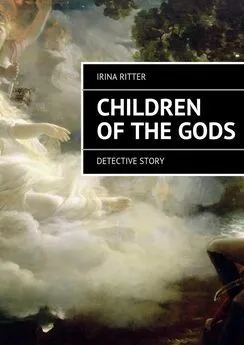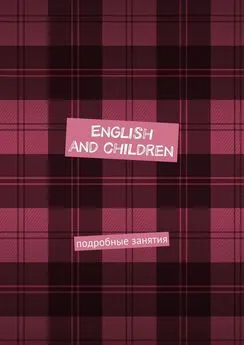Frank Herbert - Children of Dune
- Название:Children of Dune
- Автор:
- Жанр:
- Издательство:неизвестно
- Год:неизвестен
- ISBN:нет данных
- Рейтинг:
- Избранное:Добавить в избранное
-
Отзывы:
-
Ваша оценка:
Frank Herbert - Children of Dune краткое содержание
Children of Dune - читать онлайн бесплатно полную версию (весь текст целиком)
Интервал:
Закладка:
"Enough!" Agarves was beside himself with rage. His hand hovered near his knife. Warring emotions moved just below the surface of his skin, twisting his features. "Believe what you will, but I cannot go on with that woman! She fouls me! She dirties everything she touches! I am used. I am soiled. But I have not lifted my knife against my kin. Now - no more!"
Ghanima, observing this, thought: That, at least, was truth coming out of him.
Surprisingly, Stilgar broke into laughter. "Ahhhh, cousin," he said. "Forgive me, but there's truth in anger."
"Then you agree?"
"I've not said that." he raised a hand as Agarves threatened another outburst. "It's not for my sake, Buer, but there are these others." He gestured around him. "They are my responsibility. Let us consider for a moment what reparations Alia offers."
"Reparations? There's no word of reparations. Pardon, but no -"
"Then what does she offer as surety of her word?"
"Sietch Tabr and you as Naib, full autonomy as a neutral. She understands now how -"
"I'll not go back to her entourage or provide her with fighting men," Stilgar warned. "Is that understood?"
Ghanima could hear Stilgar beginning to weaken and thought: No, Stil! No!
"No need for that," Agarves said. "Alia wants only Ghanima returned to her and the carrying out of the betrothal promise which she -"
"So now it comes out!" Stilgar said, his brows drawing down. "Ghanima's the price of my pardon. Does she think me -"
"She thinks you sensible," Agarves argued, resuming his seat.
Gleefully, Ghanima thought: He won't do it. Save your breath. He won't do it.
As she thought this, Ghanima heard a soft rustling behind and to her left. She started to turn, felt powerful hands grab her. A heavy rag reeking of sleep-drugs covered her face before she could cry out. As consciousness faded, she felt herself being carried toward a door in the hall's darkest reaches. And she thought: I should have guessed! I should've been prepared! But the hands that held her were adult and strong. She could not squirm away from them.
Ghanima's last sensory impressions were of cold air, a glimpse of stars, and a hooded face which looked down at her, then asked: "She wasn't injured, was she?"
The answer was lost as the stars wheeled and streaked across her gaze, losing themselves in a blaze of light which was the inner core of her selfdom.
***
Muad'Dib gave us a particular kind of knowledge about prophetic insight, about the behavior which surrounds such insight and its influence upon events which are seen to be "on line." (That is, events which are set to occur in a related system which the prophet reveals and interprets.) As has been noted elsewhere, such insight operates as a peculiar trap for the prophet himself. He can become the victim of what he knows - which is a relatively common human failing. The danger is that those who predict real events may overtook the polarizing effect brought about by overindulgence in their own truth. They tend to forget that nothing in a polarized universe can exist without its opposite being present.
-The Prescient Vision, by Harq al-AdaBlowing sand hung like fog on the horizon, obscuring the rising sun. The sand was cold in the dune shadows. Leto stood outside the ring of the palmyrie looking into the desert. He smelled dust and the aroma of spiny plants, heard the morning sounds of people and animals. The Fremen maintained no qanat in this place. They had only a bare minimum of hand planting irrigated by the women, who carried water in skin bags. Their windtrap was a fragile thing, easily destroyed by the stormwinds but easily rebuilt. Hardship, the rigors of the spice trade, and adventure were a way of life here. These Fremen still believed heaven was the sound of running water, but they cherished an ancient concept of Freedom which Leto shared.
Freedom is a lonely state, he thought.
Leto adjusted the folds of the white robe which covered his living stillsuit. He could feel how the sandtrout membrane had changed him and, as always with this feeling, he was forced to overcome a deep sense of loss. He no longer was completely human. Odd things swam in his blood. Sandtrout cilia had penetrated every organ, adjusting, changing. The sandtrout itself was changing, adapting. But Leto, knowing this, felt himself torn by the old threads of his lost humanity, his life caught in primal anguish with its ancient continuity shattered. He knew the trap of indulging in such emotion, though. He knew it well.
Let the future happen of itself, he thought. The only rule governing creativity is the act of creation itself.
It was difficult to take his gaze away from the sands, the dunes - the great emptiness. Here at the edge of the sand lay a few rocks, but they led the imagination outward into the winds, the dust, the sparse and lonely plants and animals, dune merging into dune, desert into desert.
Behind him came the sound of a flute playing for the morning prayer, the chant for moisture which now was a subtly altered serenade to the new Shai-Hulud. This knowledge in Leto's mind gave the music a sense of eternal loneliness.
I could just walk away into that desert, he thought.
Everything would change then. One direction would be as good as another. He had already learned to live a life free of possessions. He had refined the Fremen mystique to a terrible edge: everything he took with him was necessary, and that was all he took. But he carried nothing except the robe on his back, the Atreides hawk ring hidden in its folds, and the skin-which-was-not-his-own.
It would be easy to walk away from here.
Movement high in the sky caught his attention: the splayed-gap wingtips identified a vulture. The sight filled his chest with aching. Like the wild Fremen, vultures lived in this land because this was where they were born. They knew nothing better. The desert made them what they were.
Another Fremen breed was coming up in the wake of Muad'Dib and Alia, though. They were the reason he could not let himself walk away into the desert as his father had done. Leto recalled Idaho's words from the early days: "These Fremen! They're magnificently alive. I've never met a greedy Fremen."
There were plenty of greedy Fremen now.
A wave of sadness passed over Leto. He was committed to a course which could change all of that, but at a terrible price. And the management of that course became increasingly difficult as they neared the vortex.
Kralizec, the Typhoon Struggle, lay ahead... but Kralizec or worse would be the price of a misstep.
Voices sounded behind Leto, then the clear piping sound of a child speaking: "Here he is."
Leto turned.
The Preacher had come out of the palmyrie, led by a child.
Why do I still think of him as The Preacher? Leto wondered.
The answer lay there on the clean tablet of Leto's mind: Because this is no longer Muad'Dib, no longer Paul Atreides. The desert had made him what he was. The desert and the jackals of Jacurutu with their overdoses of melange and their constant betrayals. The Preacher was old before his time, old not despite the spice but because of it.
"They said you wanted to see me now," The Preacher said, speaking as his child guide stopped.
Leto looked at the child of the palmyrie, a person almost as tall as himself, with awe tempered by an avaricious curiosity. The young eyes glinted darkly above the child-sized stillsuit mask.
Leto waved a hand. "Leave us."
For a moment there was rebellion in the child's shoulders, then the awe and native Fremen respect for privacy took over. The child left them.
"You know Farad'n is here on Arrakis?" Leto asked.
"Gurney told me when he flew me down last night."
And The Preacher thought: How coldly measured his words are. He's like I was in the old days.
"I face a difficult choice," Leto said.
"I thought you'd already made all the choices."
"We know that trap, father."
The Preacher cleared his throat. The tensions told him how near they were to the shattering crisis. Now Leto would not be relying on pure vision, but on vision management.
"You need my help?" The Preacher asked.
"Yes. I'm returning to Arrakeen and I wish to go as your guide."
"To what end?"
"Would you preach once more in Arrakeen?"
"Perhaps. There are things I've not said to them."
"You will not come back to the desert, father."
"If I go with you?"
"Yes."
"I'll do whatever you decide."
"Have you considered? With Farad'n there, your mother will be with him."
"Undoubtedly."
Once more, The Preacher cleared his throat. It was a betrayal of nervousness which Muad'Dib would never have permitted. This flesh had been too long away from the old regimen of self-discipline, his mind too often betrayed into madness by the Jacurutu. And The Preacher thought that perhaps it wouldn't be wise to return to Arrakeen.
"You don't have to go back there with me," Leto said. "But my sister is there and I must return. You could go with Gurney."
"And you'd go to Arrakeen alone?"
"Yes. I must meet Farad'n."
"I will go with you," The Preacher sighed.
And Leto sensed a touch of the old vision madness in The Preacher's manner, wondered: Has he been playing the prescience game? No. He'd never go that way again. He knew the trap of a partial commitment. The Preacher's every word confirmed that he had handed over the visions to his son, knowing that everything in this universe had been anticipated.
It was the old polarities which taunted The Preacher now. He had fled from paradox into paradox.
"We'll be leaving in a few minutes, then," Leto said. "Will you tell Gurney?"
"Gurney's not going with us?"
"I want Gurney to survive."
The Preacher opened himself to the tensions then. They were in the air around him, in the ground under his feet, a motile thing which focused onto the non-child who was his son. The blunt scream of his old visions waited in The Preacher's throat.
This cursed holiness!
The sandy juice of his fears could not be avoided. He knew what faced them in Arrakeen. They would play a game once more with terrifying and deadly forces which could never bring them peace.
***
The child who refuses to travel in the father's harness, this is the symbol of man's most unique capability. "I do not have to be what my father was. I do not have to obey my father's rules or even believe everything he believed. It is my strength as a human that I can make my own choices of what to believe and what not to believe, of what to be and what not to be."
-Leto Atreides II, The Harq al-Ada BiographyPilgrim women were dancing to drum and flute in the Temple plaza, no coverings on their heads, bangles at their necks, their dresses thin and revealing. Their long black hair was thrown straight out, then straggled across their faces as they whirled.
Alia looked down at the scene from her Temple aerie, both attracted and repelled. It was mid-morning, the hour when the aroma of spice-coffee began to waft across the plaza from the vendors beneath the shaded arches. Soon she would have to go out and greet Farad'n, present the formal gifts and supervise his first meeting with Ghanima.
It was all working out according to plan. Ghani would kill him and, in the shattering aftermath, only one person would be prepared to pick up the pieces. The puppets danced when the strings were pulled. Stilgar had killed Agarves just as she'd hoped. And Agarves had led the kidnappers to the djedida without knowing it, a secret signal transmitter hidden in the new boots she'd given him. Now Stilgar and Irulan waited in the Temple dungeons. Perhaps they would die, but there might be other uses for them. There was no harm in waiting.
Читать дальшеИнтервал:
Закладка:





![[frank_sparral] - Анаксаген. Том I. Записки сумасшедшего](/books/1216862/frank-sparral-anaksagen-tom-i-zapiski-sumasshed.webp)
